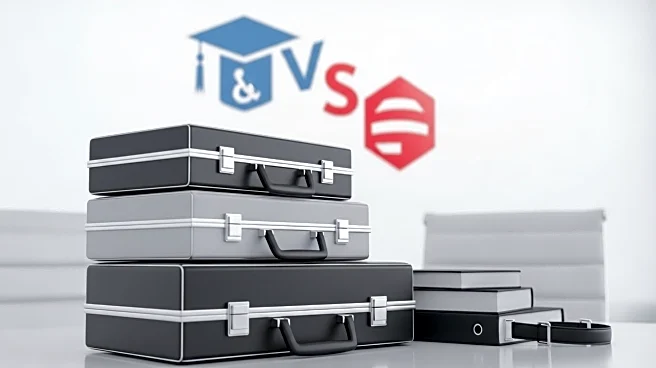What is the story about?
What's Happening?
A recent report by Cengage Group highlights a significant disconnect between educators and students regarding workforce readiness. While nearly 90% of educators believe their students are prepared for the job market, almost half of the graduates feel unprepared for entry-level roles. The report indicates that educators focus on soft skills like critical thinking, whereas employers prioritize job-specific technical skills, particularly in AI. This mismatch leaves many graduates feeling unprepared for the demands of the workplace. Additionally, the pandemic has reduced opportunities for internships and networking, further impacting students' readiness. Employers are also hiring fewer entry-level workers, exacerbating the issue.
Why It's Important?
The gap between educational preparation and employer expectations has significant implications for the U.S. job market, particularly for Gen Z graduates. As technical skills become increasingly vital, the lack of alignment between educational institutions and industry needs could hinder economic growth and innovation. Employers may face challenges in finding adequately prepared candidates, potentially leading to increased training costs and reduced productivity. For students, this disconnect can result in job insecurity and career stagnation, affecting their financial stability and long-term career prospects.
What's Next?
To address this issue, stronger partnerships between educational institutions and employers are necessary. By co-designing relevant courses and expanding access to internships, both parties can ensure graduates are equipped with the skills needed in today's rapidly changing economy. This collaboration could lead to more tailored educational programs that align with industry demands, ultimately benefiting both students and employers.















